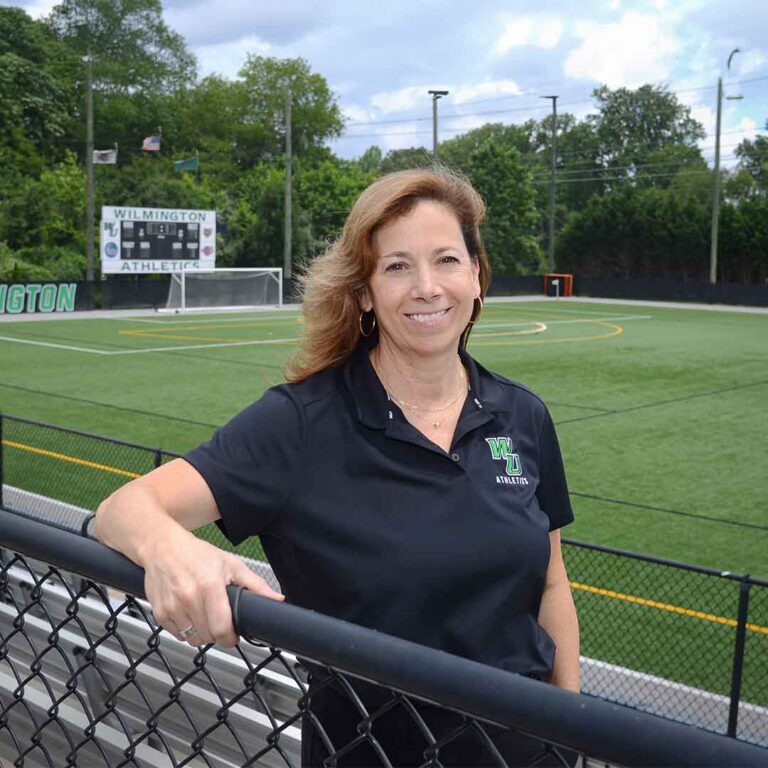Teaching Students to Succeed

It is an oft-quoted maxim that if you give a person a fish, you feed that person for a day, but if you teach that person to fish, you feed that person for a lifetime. Nowhere is this maxim truer than in legal education. Given the wide array of practice areas, from divorce law to personal injury, to mergers and acquisitions, it would be impossible for any law school to teach students every trace of doctrinal knowledge during the few years those students are in law school.
In part because of this impossibility, law schools instead teach students a smaller subset of core doctrinal knowledge while primarily focusing on the skill of “thinking like a lawyer.” Thinking like a lawyer requires that students have a rigorous analytical approach to complex problems and the tools necessary to solve those problems. Thinking like a lawyer requires being able to assess strengths and weaknesses and develop a practical plan based on this assessment.
Yet, as much as law schools profess that they teach students to think like lawyers, few empower students to apply this skill to their legal educations. This is one of many ways Wilmington University School of Law differs. At Wilmington Law, formative assessments are used to empower law students to take responsibility for success in their legal careers.
For every law student, one final hurdle stands between graduation and practice — the bar exam. Every jurisdiction administers a bar exam to test both critical thinking skills as well as “minimum competency” in applicable state law. No lawyer can be licensed to practice in the United States without passing the bar exam in at least one state. The bar exam is challenging. The test taker must demonstrate knowledge of a wide variety of subject areas while answering multiple-choice and essay questions under intense time pressure.
Students who seek admittance to the Delaware bar face additional challenges. Delaware requires one of the highest passing scores in the country on its bar exam. In addition, the Delaware bar exam is one of the few bar exams that has eschewed the uniform exam format adopted by most other states. Delaware tests 10 specific subject areas compared to the seven on the uniform exam. Several of these subjects, including Delaware business law and Delaware civil procedure, reflect the unique character of legal practice in Delaware.
Delaware has been the premier state of formation for business entities since the early 1900s. With corporations coming from across the country to litigate their disputes in Delaware’s business-oriented Chancery Court, membership in the Delaware bar requires a sophisticated understanding of corporate law. Passing the Delaware bar exam may not be easy, but passage guarantees membership to a highly exclusive club.
With this backdrop in mind, Wilmington University School of Law has designed its curriculum not to teach law students to pass the bar as a singular goal, but rather to give them the tools necessary to steer their own academic success. Wilmington Law seeks to break down barriers for its students, not only through its unique curriculum that emphasizes subjects critical to the development of any Delaware lawyers but also by testing substantive knowledge and legal reasoning using methods that introduce students to the structure of the bar exam. Students are not taught “to the bar” but rather are evaluated on their underlying professional development using tactics designed to familiarize students with the bar exam’s format and style. The curriculum demystifies the bar exam while teaching students the substantive knowledge and legal reasoning skills they will need for practice.
At Wilmington Law, doctrinal courses cover the same subject matter as other law schools. However, through the formative assessment process, students also develop personal responsibility for their learning. In each class, they learn what worked for them and what didn’t, and they can use this information going forward to evolve their law school development. In other words, students become equipped to assess their learning and, thereby, improve their academic outcomes.
In many other law schools, students in doctrinal courses are evaluated using a single examination administered at the end of the semester. The format of this exam varies from professor to professor. Unless students take the initiative to seek feedback after the semester has concluded, they never learn anything about their performance on the exam. They may simply receive a grade for the course as a whole. This gives students no details about what they got right and wrong on the exam itself. Even worse, in some cases, when students seek feedback, they learn that the exam grading is subjective.
In these law schools, students may learn doctrine — but they rarely learn how to evaluate and improve their performance in real time. They are given some fish but left to their own devices to learn how to fish.
Wilmington Law is different. Faculty here take a uniform and systematic approach. From the first year on, all doctrinal courses include two formative assessments administered throughout the semester. The purpose of formative assessment is to monitor student learning and provide ongoing feedback. Twice during the semester, students take either a multiple-choice or essay exam designed to mimic bar-exam question style and time constraints closely. Faculty then grade these exams, testing how well students demonstrate doctrinal knowledge.
After grading the exams, faculty meet with students to review their responses. Students learn, in real time, how they performed and why. These formative assessments help students identify strengths and weaknesses and enable them to exercise control over their own learning. Students learn how to communicate effectively. They learn to identify flaws in their own legal reasoning. The formative assessments test the same doctrinal knowledge as those given in other law schools, but the formative assessments at Wilmington Law go beyond testing knowledge to endow students with skills they can use to guide their learning going forward.
In the process, these formative assessments also demystify the bar-exam process. By the time Wilmington Law students answer their first multiple-choice question on the bar exam, those students will have answered similar questions more than 500 times before. Moreover, these students will have analytical skills that they know work —because they used those analytical skills on themselves. Each piece of feedback received on a formative assessment was an opportunity to self-evaluate and either reinforce effective learning techniques or pivot away from ineffective ones. Long before they sit for the bar exam, Wilmington Law students will have learned to be expert fishermen, and, with some luck, they will soon be employing their analytical skills as members of the Delaware bar.
—Veronica J. Finkelstein
Veronica J. Finkelstein, J.D., is an associate professor at Wilmington University School of Law. Learn more about her at law.wilmu.edu/faculty/veronica-finkelstein.



